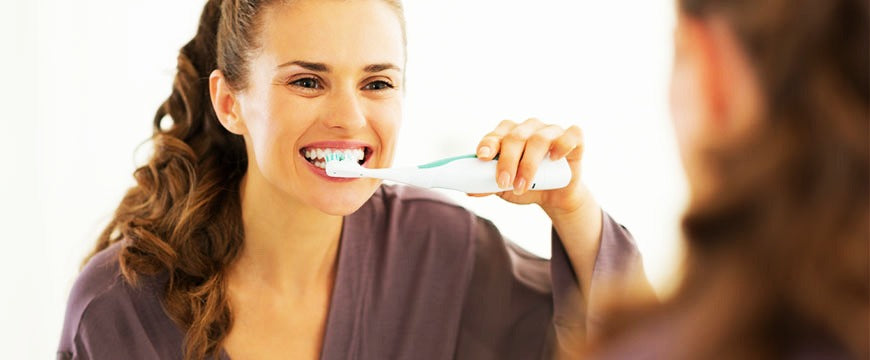
Neuroscientist Warning: This Bedtime Routine is Ruining Your Sleep
Share
Pretty much every one of us follows the exact same pre-bedtime routine – we get into our PJs, head for the bathroom, flip on the lights, and brush our teeth clean of the food and grime of the day.
But according to some neuroscientists at the Oxford University in England, we might want to reconsider our nightly oral hygiene routine when it comes to one aspect – they seem to think that teeth brushing is better done in the dark.
Why? It all comes down to getting a better night’s rest with improved sleep habits.
People usually turn the lights down at night, helping the body get ready for sleep by increasing the production of the “drowsy hormone,” melatonin, which is what encourages the body to shut down for the night and get the rest it needs to thrive.
When heading into the bathroom for their nightly tooth care routine, the introduction of bright light can reset the body’s sleep cycle and send signals to the brain saying it’s time to wake up, confusing the body and sending the melatonin that has been produced back into storage for use at another time.
That sleep and wake cycle is also known as the circadian rhythm, and it’s what regulates the internal clock of all living creatures, telling the body when to be active and when to grow sleepy.
The human circadian rhythm has evolved over time to correspond with the natural cycle of light during the day and darkness during the night. Depending on where the sun is in the sky, our bodies will begin to produce hormones at the urging of our circadian rhythms to either help keep us awake or give us the nudge that it’s time for sleep.
Sticking as closely as we can to these natural cycles of day and night, wakefulness and rest, helps to make sure that our bodies are balanced, getting enough sleep, and healthy and well, in general.
This worked out wonderfully when we weren’t living in a modern world that is flooded with light 24/7 but now that we have almost constant exposure to artificial illumination from street lights, computers, cell phones, and televisions, our bodies are having an increasingly difficult time with following the built-in circadian rhythms that we were all born with.
What’s worse, the prolonged exposure to bright light may affect more than our sleep. Scientists around the world are finding more and more signs that artificial light is detrimental to our physiology, and they have linked too much exposure to artificial light to illnesses such as obesity, diabetes, depression, and even cancer.
What can we do to not only sleep better but keep ourselves healthier and happier? Health experts recommend cutting back on your time under artificial lighting, especially the kind that comes from fluorescent light bulbs.
When it comes to your bedtime routine, if brushing your teeth in a total blackout doesn’t appeal to you, try swapping the bulbs in your bathroom light fixtures with some that have lower wattage, or even invest in a nightlight for the outlet beside your bathroom mirror.
These simple changes may help you to improve the quality of your sleep and give you a longer, healthier life overall. Sounds like a win-win, right?
